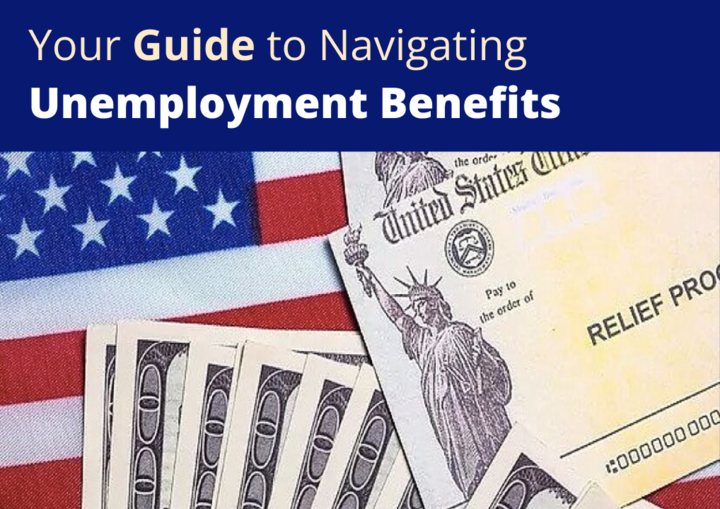Financial security is a cornerstone of responsible family planning, ensuring that loved ones are protected from unforeseen circumstances. Life insurance serves as a vital tool in this regard, providing a safety net that can alleviate the financial burden on family members in the event of an untimely death. The death benefit from a life insurance policy can cover essential expenses such as mortgage payments, education costs, and daily living expenses, allowing surviving family members to maintain their standard of living without the added stress of financial instability.
Moreover, the peace of mind that comes with knowing that your loved ones will be taken care of can be invaluable. This assurance allows individuals to focus on their daily lives without the constant worry of what might happen if they were no longer around. By investing in life insurance, individuals are not only safeguarding their family’s financial future but also fostering a sense of security that can enhance overall well-being.
The emotional relief that accompanies this financial planning is often overlooked but is a significant aspect of responsible stewardship.
Key Takeaways
- Life insurance provides financial security for your loved ones in the event of your passing.
- It offers protection against debt and expenses, ensuring your family is not burdened with financial obligations.
- Locking in lower premiums at a younger age can save you money in the long run.
- Supplementing employer-sponsored coverage with life insurance can provide additional peace of mind.
- Building cash value through life insurance can help meet future financial needs and provide a sense of security.
Protection Against Debt and Expenses
In today’s world, debt is an unfortunate reality for many families. Mortgages, student loans, credit card debt, and other financial obligations can create a heavy burden. Life insurance can act as a protective barrier against these debts, ensuring that loved ones are not left to shoulder the financial weight in the event of a tragedy.
For instance, if a primary breadwinner passes away, the life insurance payout can be used to settle outstanding debts, preventing the family from facing foreclosure or bankruptcy. Additionally, life insurance can cover immediate expenses that arise after a death, such as funeral costs and medical bills. These expenses can be substantial and often catch families off guard during an already difficult time.
By having a life insurance policy in place, individuals can ensure that their families are not only protected from long-term financial obligations but also from the immediate financial strain that can accompany the loss of a loved one. This proactive approach to financial planning can make a significant difference in how families cope with grief and loss.
Locking in Lower Premiums at a Younger Age
One of the most strategic moves individuals can make regarding life insurance is purchasing a policy at a younger age. Premiums are typically lower for younger applicants because they are generally considered lower risk by insurers. By locking in these lower rates early on, individuals can secure substantial coverage for their families without straining their budgets later in life.
This approach not only provides immediate financial protection but also allows for long-term savings. For example, consider a 30-year-old who purchases a 20-year term life insurance policy. The premiums for this policy will be significantly lower than those for someone who waits until they are 50 to buy the same coverage.
As individuals age, health issues may arise, leading to higher premiums or even disqualification from obtaining coverage altogether. By acting early, individuals can ensure that they have adequate protection in place while also benefiting from cost savings that can be redirected toward other financial goals.
Supplementing Employer-Sponsored Coverage
While many employers offer life insurance as part of their benefits package, this coverage is often limited and may not provide sufficient protection for an individual’s family. Relying solely on employer-sponsored life insurance can leave families vulnerable if the coverage amount is inadequate or if the individual changes jobs or becomes unemployed. Therefore, it is prudent to consider supplemental life insurance policies that can provide additional coverage tailored to specific needs.
Supplemental life insurance allows individuals to customize their coverage based on their unique circumstances. For instance, a young family with children may require more substantial coverage than what is provided through an employer’s plan. By purchasing an individual policy, they can ensure that their loved ones are adequately protected regardless of changes in employment status or company policies.
This additional layer of security can be crucial in maintaining financial stability during challenging times.
Building Cash Value for Future Needs
Many types of life insurance policies, particularly whole life and universal life insurance, come with a cash value component that grows over time. This cash value can serve as a financial resource for various future needs, such as funding education expenses, making a down payment on a home, or even serving as an emergency fund. The ability to borrow against this cash value or withdraw funds provides policyholders with flexibility and access to capital when needed.
For example, if a policyholder has accumulated cash value in their whole life policy, they may choose to take out a loan against it to finance their child’s college education. This option allows them to access funds without incurring debt or disrupting their investment strategy. Additionally, the cash value continues to grow even when borrowed against, making it an attractive feature for those looking to leverage their life insurance policy as part of their broader financial strategy.
Peace of Mind for Unexpected Life Events
Life is inherently unpredictable, and unexpected events can occur at any moment. Whether it’s an accident, illness, or other unforeseen circumstances, having life insurance provides peace of mind that loved ones will be taken care of financially should the worst happen. This assurance allows individuals to live their lives with greater confidence and less anxiety about potential future hardships.
The emotional benefits of having life insurance extend beyond mere financial security; they encompass the overall quality of life for both the insured and their family members. Knowing that there is a plan in place to protect loved ones from financial distress can alleviate stress and foster healthier relationships. Families can focus on creating memories and enjoying time together rather than worrying about what might happen if tragedy strikes.
Potential for Tax Benefits
Life insurance policies often come with tax advantages that can enhance their appeal as part of a comprehensive financial strategy. Generally, the death benefit paid out to beneficiaries is not subject to income tax, providing an efficient means of transferring wealth without incurring tax liabilities. Additionally, the cash value growth within permanent life insurance policies is tax-deferred, meaning policyholders do not pay taxes on the gains until they withdraw funds or surrender the policy.
These tax benefits can be particularly advantageous for high-net-worth individuals looking to pass on wealth to future generations while minimizing tax implications. By strategically incorporating life insurance into estate planning, individuals can ensure that their heirs receive maximum benefits without facing significant tax burdens. This aspect of life insurance makes it not only a protective measure but also a valuable tool for wealth management and legacy planning.
Planning for the Future of Your Family
Ultimately, life insurance is about planning for the future and ensuring that loved ones are cared for no matter what happens.
It serves as a critical component of comprehensive financial planning that encompasses various aspects of family welfare—from debt protection and education funding to wealth transfer and emergency resources.
By taking proactive steps to secure adequate coverage, individuals demonstrate their commitment to their family’s well-being and future stability.
As families grow and circumstances change, it is essential to regularly review and adjust life insurance policies to reflect current needs and goals. This ongoing assessment ensures that coverage remains relevant and sufficient over time. Engaging with financial advisors or insurance professionals can provide valuable insights into how best to structure policies and integrate them into broader financial plans.
In doing so, individuals not only protect their families but also empower them to thrive in an uncertain world.
Life Insurace Powered By eFinancial
FAQs
What is life insurance?
Life insurance is a contract between an individual and an insurance company, where the individual pays regular premiums in exchange for a lump sum payment to their beneficiaries upon their death.
Why is it important to have a life insurance policy in your 30s?
Having a life insurance policy in your 30s is important because it allows you to lock in lower premiums while you are young and healthy. It also provides financial protection for your loved ones in the event of your untimely death.
What are the benefits of having a life insurance policy in your 30s?
Some benefits of having a life insurance policy in your 30s include financial protection for your family, the ability to cover outstanding debts and funeral expenses, and the potential to build cash value over time.
What are the different types of life insurance policies available for individuals in their 30s?
There are several types of life insurance policies available for individuals in their 30s, including term life insurance, whole life insurance, and universal life insurance. Each type has its own features and benefits.
How much life insurance coverage do I need in my 30s?
The amount of life insurance coverage you need in your 30s depends on your individual circumstances, such as your income, debts, and financial goals. It’s important to consider these factors when determining the appropriate coverage amount.
Can I purchase a life insurance policy in my 30s if I have pre-existing health conditions?
Yes, it is possible to purchase a life insurance policy in your 30s if you have pre-existing health conditions. However, the cost of the policy and the coverage options may be affected by your health status. It’s important to shop around and compare quotes from different insurance companies.







